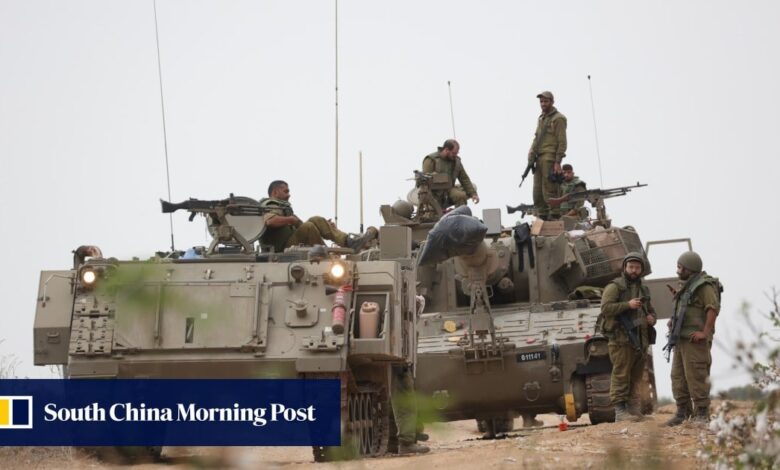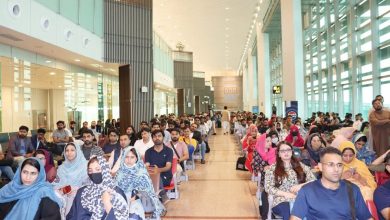Conflict between Israel and Hamas puts China’s approach to Middle East to the test

Beijing’s response was consistent with its long-held policy of steering clear of foreign conflicts.
Fan Hongda, a professor at Shanghai International Studies University’s Middle East Studies Institute, said that the two-state solution, which envisions an independent state of Palestine alongside the state of Israel, is broadly accepted by the international community as a way to end the conflict.
However, China’s response to the latest attacks has been criticised by Israel, which has called for Beijing to take a stronger position.
Israel-Hamas war will ‘change the Middle East’, PM Netanyahu declares
Israel-Hamas war will ‘change the Middle East’, PM Netanyahu declares
“There is no such thing as a neutral position at this time,” said Tuvia Gering, a researcher with the Institute for National Security Studies.
“So far, China’s response at the UN through the foreign ministry and Zhang has been immoral in the face of crystal-clear evidence of inhumane barbarity by Palestinian terrorists against Israelis in violation of any known humanitarian and international law.”
“China’s position has drawn special attention because what happened in Gaza was different from the previous conflicts and responses differed between countries,” said Fan. “If China’s position, based on international norms, could be more in tune with the characteristics of each conflict, that would be better for China’s image.
“Still, the war in Gaza is very different from the previous ones and it is testing China’s Middle East diplomacy.”
Yan Wei, deputy director at the Institute of Middle Eastern studies at China’s Northwest University, said: “China has emphasised the Palestinian right to establish itself as an independent country and has supported such appeals because in the long run, the Palestinian issue is and will be the core of the Middle East issue.
“Without resolving the Palestinian issue, it will be very hard to have real peace in the Middle East,” he said, “This is a consistent position of China.”
Israeli Prime Minister Benjamin Netanyahu warned on Monday that the country was facing a long and difficult war as the country started to mobilise troops for an assault on Gaza and continued its attacks from the air.
The conflict threatens to undermine other peace initiatives in the region, including the Chinese-brokered deal to restore diplomatic relations between Iran and Saudi Arabia.
Since then, Beijing has demonstrated a stronger willingness to engage in regional conflict mediation, with President Xi Jinping offering to facilitate peace talks when he hosted Palestinian Authority leader Mahmoud Abbas in Beijing in June.
Israeli air strike kills 19 members of same family in southern Gaza
Israeli air strike kills 19 members of same family in southern Gaza
On Sunday Hamas spokesman Ghazi Hamad told BBC that the group had backing from Iran and other countries, though he did not name them. Iran denied any involvement the following day.
The ongoing war also casts a shadow over Netanyahu’s planned trip to China, which was expected to take place later this month.
Strengthening ties with China and seeking Beijing’s help in normalising its ties with Saudi Arabia was believed to be high on his agenda.
“Under this circumstance, I don’t know if [the visit] will take place,” Yuval Waks, deputy chief of the Israeli mission in Beijing, said on Sunday.
Li Weijian, a researcher at the Shanghai Institute for International Studies, said mediation efforts would be a long process and China could not solve the problem on its own.
The dispute between the Palestinians and Israelis is different from the one between Saudi Arabia and Iran, which are willing to “put aside some of their disagreements when focusing more on their own development,” Li said.
“Palestine has such concrete demands, to establish an independent state with territory and a capital and it could hardly survive as a special region,” he continued.
“That’s why China needs to push for a solution to the Palestine issue so it will not be marginalised and will be brought back under the international spotlight.”





